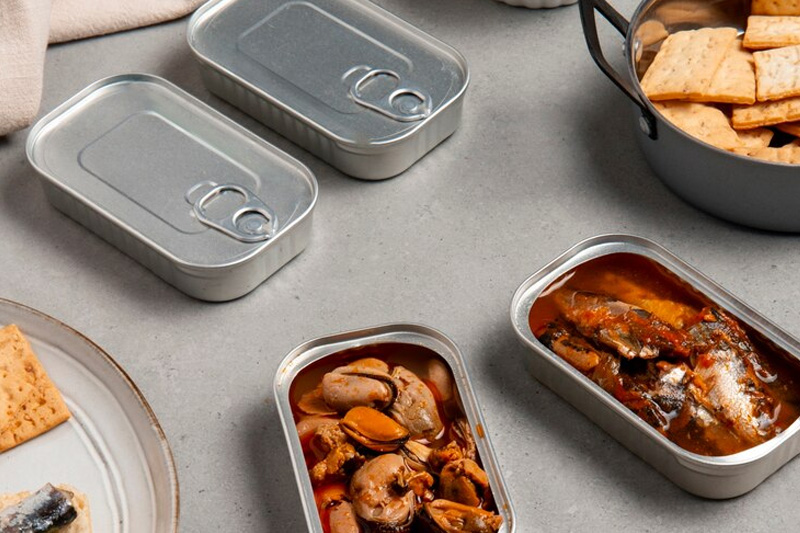The COVID-19 pandemic has profoundly impacted industries worldwide, including the canned food manufacturing sector. As the world grapples with unprecedented challenges and disruptions, canned food manufacturers are facing unique obstacles in maintaining operations, ensuring supply chain resilience, and meeting the increased demand for shelf-stable products. In this blog post, we'll delve into the impact of COVID-19 on canned food manufacturing and supply chains, exploring how industry players are adapting to navigate through these uncertain times while leveraging insights and innovation to address emerging challenges.
Disruptions in Canned Food Manufacturing
The COVID-19 pandemic has caused significant disruptions in canned food manufacturing operations, leading to production slowdowns, labor shortages, and logistical challenges. With social distancing measures in place and health and safety protocols to adhere to, manufacturers have had to adjust their operations to ensure the well-being of their employees while maintaining continuity in production.
Additionally, fluctuations in demand have forced manufacturers to adapt quickly to changing consumer behaviors and preferences. While some products experienced surges in demand due to panic buying and stockpiling, others faced declines as restaurants, schools, and other institutions closed or scaled back operations.
Supply Chain Challenges
The pandemic has also exposed vulnerabilities in global supply chains, posing challenges for canned food manufacturers in sourcing raw materials, components, and packaging materials. Disruptions in transportation, border closures, and trade restrictions have caused delays and increased costs, leading to supply chain bottlenecks and uncertainties.
Moreover, labor shortages and outbreaks among workers in processing plants and distribution centers have further exacerbated supply chain challenges, impacting production capacity and distribution networks. Manufacturers have had to implement contingency plans, diversify sourcing strategies, and collaborate closely with suppliers to mitigate risks and ensure continuity in the supply of canned foods.
Adapting to Evolving Consumer Trends
The COVID-19 pandemic has accelerated shifts in consumer behavior and preferences, driving changes in the canned food industry. With more people cooking and eating at home due to lockdowns and social distancing measures, there has been a growing demand for convenient, shelf-stable products like canned foods.
Canned food manufacturers have responded by expanding their product lines, introducing new flavors and varieties, and innovating packaging formats to meet the changing needs and preferences of consumers. Additionally, manufacturers have focused on enhancing the nutritional value of their products and promoting their versatility and convenience to appeal to health-conscious consumers seeking wholesome meal solutions.
Leveraging Mushroom Production Technology for Resilience
Mushroom production technology has emerged as a valuable asset for canned food manufacturers seeking resilience in the face of COVID-19-related challenges. Mushrooms are not only nutritious and flavorful but also have a longer shelf life compared to many other perishable foods, making them an ideal ingredient for canned foods.
By leveraging mushroom production technology, manufacturers can diversify their product offerings, enhance their nutritional profiles, and extend their shelf life. Mushroom-based canned foods provide consumers with nutritious and sustainable options while offering manufacturers a reliable source of ingredients that can withstand supply chain disruptions.
Insights Driving Resilience and Innovation
Insights into consumer behavior, market trends, and emerging challenges have played a crucial role in guiding canned food manufacturers through the COVID-19 crisis. By staying informed and agile, manufacturers can anticipate changes in demand, adapt their strategies, and identify opportunities for innovation and growth.
Moreover, collaboration and partnerships have become increasingly important as manufacturers seek to build resilience and strengthen their supply chains. By working closely with suppliers, distributors, and retail partners, manufacturers can streamline operations, optimize logistics, and ensure the availability of canned foods to meet the needs of consumers during these challenging times.
Conclusion: Navigating Through Uncertainty
In conclusion, the COVID-19 pandemic has presented unprecedented challenges for the canned food manufacturing industry, impacting operations, supply chains, and consumer behavior. However, industry players have demonstrated resilience, adaptability, and innovation in navigating through these uncertain times.
By leveraging insights, technology, and collaborative partnerships, canned food manufacturers have been able to mitigate risks, maintain continuity in production, and meet the increased demand for shelf-stable products. As the world continues to navigate through the pandemic, the canned food industry remains committed to providing consumers with convenient, nutritious, and reliable meal solutions, ensuring that canned foods remain a staple in pantries around the world for years to come.



采访刊发中国罐头⾏业-01.jpg)


